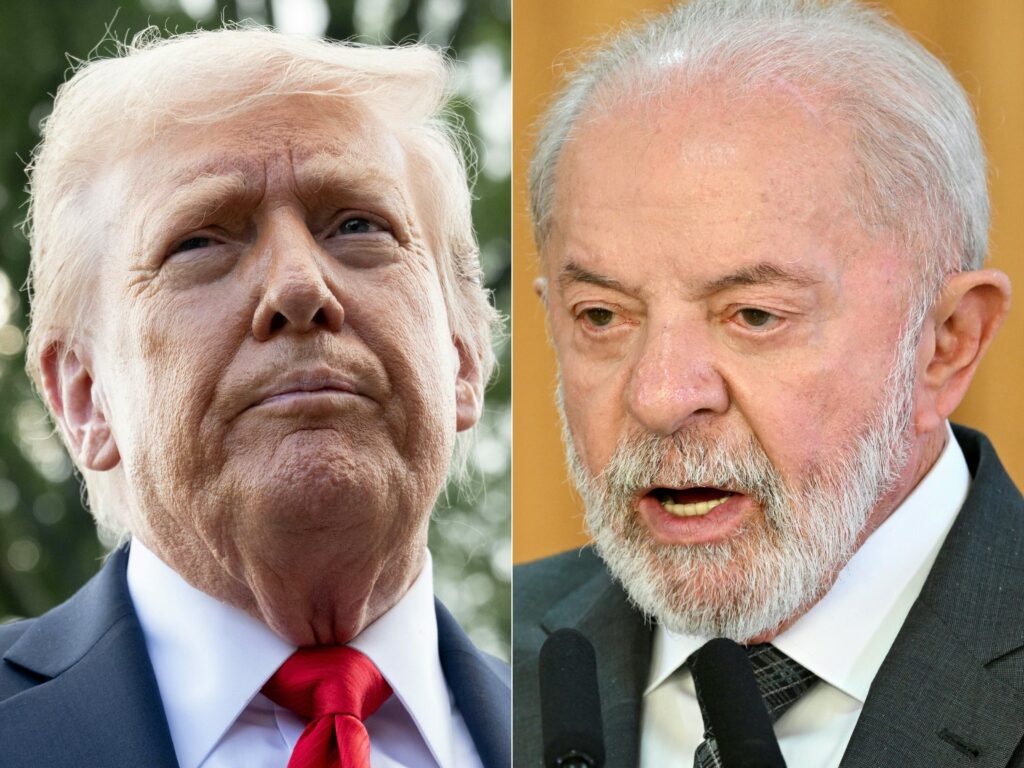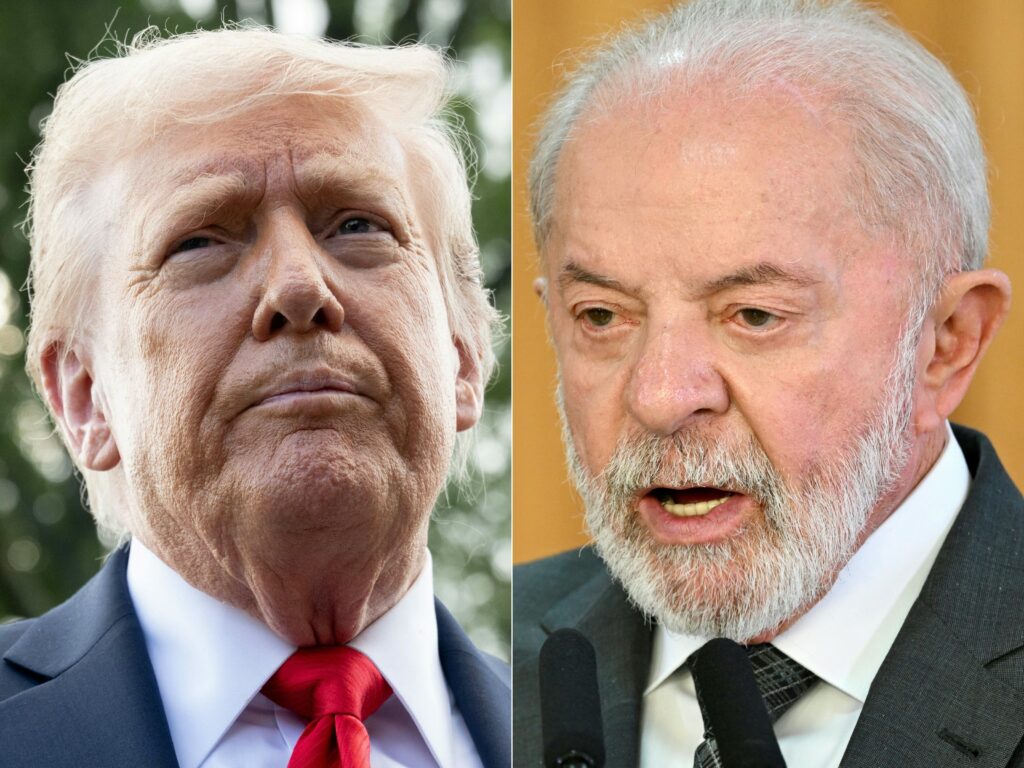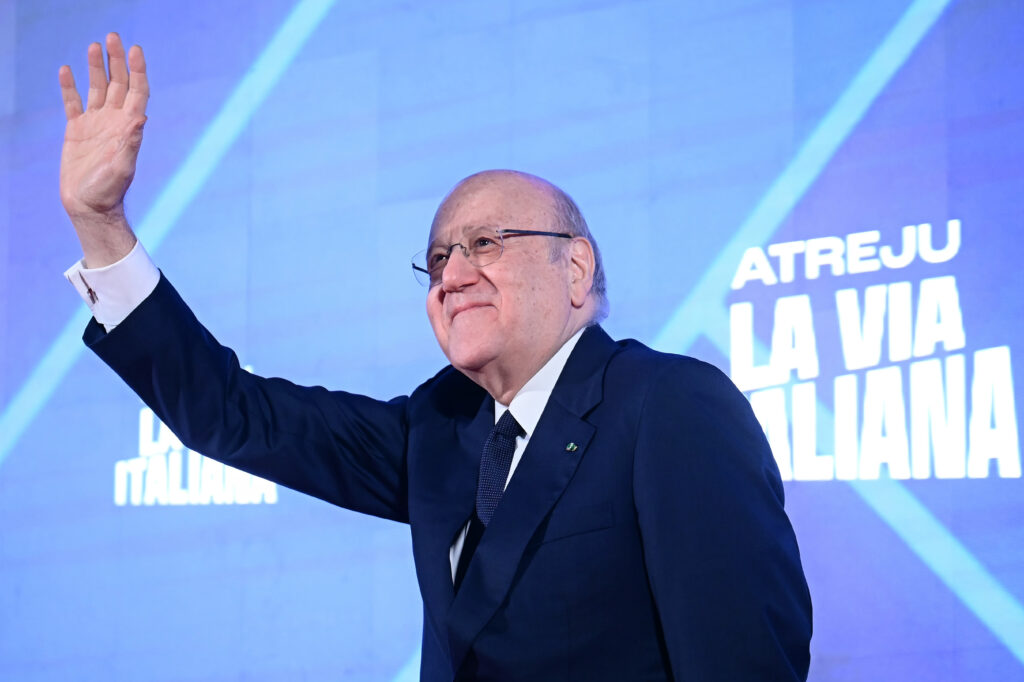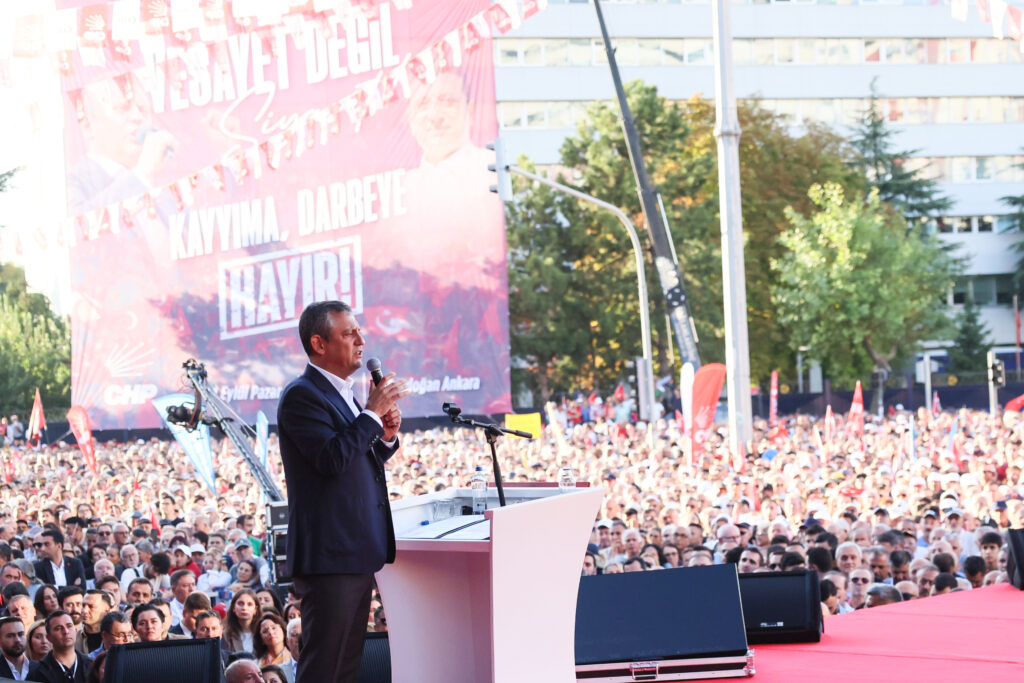Les manifestants propalestiniens font définitivement dérailler la Vuelta
Soudain, les barrières tombent, et un flot de manifestants pénètrent sur Gran Via, en plein coeur de Madrid: brandissant drapeaux et pancartes fustigeant le “génocide sioniste” à Gaza, plus de 100.000 manifestants propalestiniens viennent de signer dimanche la fin prématurée du Tour d’Espagne cycliste.Peu après 18H00 (16H00 GMT), alors qu’ils bordent le parcours, trois ou quatre d’entre eux enlèvent une barrière et pénètrent sur cette avenue touristique, a constaté une journaliste de l’AFP.Des policiers, déployés en nombre après les incidents qui ont perturbé la Vuelta depuis son arrivée en Espagne en raison de la participation de l’équipe Israel-Premier Tech, s’approchent, mais bientôt toutes les barrières sont renversées sur plusieurs mètres, et une marée de personnes envahit la chaussée.Après un léger mouvement de panique, l’ambiance se calme, et la foule, dans laquelle se trouvent des familles avec pour certaines de jeunes enfants en poussette, ou des personnes âgées, défile tranquillement, encadrée par des policiers qui n’interviennent pas.Dans le même temps, des scènes similaires se répètent dans d’autres points de la ville. Près de la gare d’Atocha, les policiers répliquent dans un premier temps plus fermement, en chargeant et en lançant quelques grenades lacrymogènes, avant finalement, de laisser les manifestants défiler aux cris de “Boycott Israël”, “Ce n’est pas une guerre, c’est un génocide!” ou “Halte aux morts d’enfants innocents!”.- Renforts exceptionnels -A une cinquantaine de kilomètres, les coureurs, eux, mettent pied à terre. Quelques instants plus tard, la direction de la course annonce son arrêt définitif, épilogue d’une compétition qui aura été marquée quasi quotidiennement par des manifestations et des incidents.Dans le coeur de Madrid, les policiers ont empêché tout accès à la zone où devaient notamment avoir lieu les cérémonies protocolaires. Quelques incidents y ont éclaté toutefois en début de soirée, et les forces de l’ordre ont usé à nouveau de gaz lacrymogènes, avant une dispersion dans le calme en fin de soirée.Des renforts exceptionnels avaient été déployés dimanche – à un niveau jamais vu dans la ville depuis un sommet de l’Otan en 2022 selon les autorités – et des blindés avaient même été prépositionnés à certains carrefours en cas d’incidents graves.”La Vuelta, c’est une excuse pour venir montrer notre soutien” aux Palestiniens, a expliqué à l’AFP, avant l’irruption sur le parcours des manifestants, Rosa Mostaza Rodriguez, une enseignante de 54 ans, robe rouge et foulard vert sur la tête. “Je n’aime pas que nous soyons arrivés à ça parce que cette course n’aurait jamais dû avoir lieu. Israël commet un génocide à Gaza et ne devrait pas participer à ces événements internationaux”, a estimé pour sa part José Luis Fernández, 74 ans, professeur d’université à la retraite, défilant après l’interruption de l’épreuve. L’attaque du Hamas du 7 octobre 2023 a entraîné la mort de 1.219 personnes côté israélien, en majorité des civils. L’offensive israélienne de représailles a fait au moins 64.871 morts dans la bande de Gaza, aujourd’hui en pleine crise humanitaire.- Réglement de compte politique -Depuis son arrivée sur le territoire espagnol, la course a été le théâtre de manifestations propalestiniennes qui ont fortement perturbé les coureurs, dont certains ont chuté lors d’incidents, et entraîné la modification de plusieurs étapes.Dans un pays où la cause palestinienne est très populaire, ces manifestations ont en outre lieu en période de grande tension entre le gouvernement du socialiste Pedro Sanchez et celui de Benjamin Netanyahu, après notamment l’annonce récente par le Premier ministre espagnol de mesures destinées à “mettre un terme au génocide à Gaza”.Dans la soirée, la fin chaotique de l’épreuve a tournée au règlement de compte politique entre le gouvernement et l’opposition de droite.”La société espagnole ne tolère pas que le génocide à Gaza soit normalisé dans des événements sportifs ou culturels”, a salué sur les réseaux sociaux la ministre du Travail Yolanda Diaz, issue de la plateforme d’extrême gauche Sumar et N.3 du gouvernement. Selon elle, “Israël ne peut participer à aucun événement tant qu’il continue de commettre un génocide”.Le Premier ministre socialiste Pedro Sanchez, l’une des voix les plus critiques en Europe sur l’action menée par Israël à Gaza, n’a pas réagi immédiatement, mais il avait fait part dimanche matin de son “admiration” pour les manifestants tout en disant son “respect” des sportifs.Le chef du Parti populaire (PP, opposition de droite), Alberto Nunez Feijoo a quant à lui fustigé dimanche sur X “une honte internationale relayée dans le monde entier”, due, selon lui, au gouvernement socialiste qui a “non seulement permis, mais aussi encouragé l’interruption de La Vuelta”.







